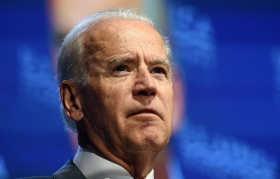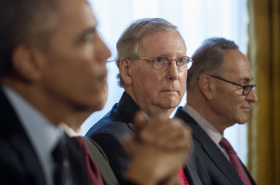
One of several blunders, according to a Homeland Security report
An intruder was able to climb the White House fence and enter the premises in September due to a number of mishaps, like faulty alarm systems and officers not even spotting him, according to a summary of a Homeland Security report reviewed Thursday.
Members of Congress were briefed on the report Thursday, according to the New York Times, which obtained its executive summary. The report is said to detail the security lapses that allowed Omar Gonzalez, who is charged in the Sept. 19 breach, to enter the White House. Among them, an officer who was stationed with an attack dog on the North Lawn was busy talking on a personal cellphone in a van and had not seen the man climb the fence.
Julia Pierson, who was the Secret Service director at the time of the incident, later resigned.
Read more at the New York Times.





